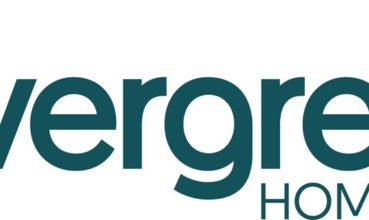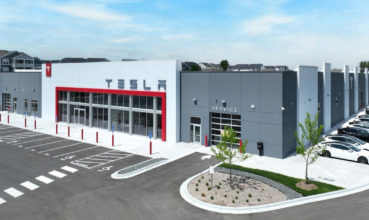NCJAR Hosts Successful Housing Fair & Expo in Newark, NJ NCJAR Empowers New Jersey Residents with Vital Homeownership Resources at Annual Housing Fair & Expo in Newark, NJ. NEWARK, N...
The ESG Factor: Why Sustainable Buildings Are Commanding Premium Valuations




When European real estate investor association INREV announced its new focus group on ESG valuations this month, it wasn’t just creating another industry committee – it was acknowledging a significant evolution in how properties are valued. For investors, the message is clear: ESG isn’t just about doing good; it’s about protecting asset values and maximizing returns in an increasingly ESG-conscious market.
“Investors join INREV group to help integrate ESG into real estate valuations,” reported IPE Real Assets, highlighting how institutional investors are actively working to quantify what many have long suspected: properties with strong environmental, social, and governance credentials are worth more, and this premium is only expected to grow as regulations tighten and tenants demand more sustainable spaces.
ESG’s Growing Influence
Recent research by Knight Frank reveals that ESG regulatory pressures are already forcing major changes in property usage and valuation, particularly with historic buildings. Some property owners are finding themselves forced to convert or upgrade their properties to meet new sustainability standards or face significant value deterioration. For instance, buildings that do not meet these evolving standards are likely to experience a 20-30% reduction in valuation over the next five years, according to a recent Knight Frank report.
But it’s not all stick and no carrot. In the Middle East, where sustainability might seem a harder sell, Innovo recently captured “Sustainable Contractor of the Year” at the BPME Awards, demonstrating how ESG leadership is becoming a market differentiator. Their recognition highlighted “industry leadership in responsible construction, environmental stewardship, and ESG-driven innovation.” This shows how companies are not just complying with ESG requirements but actively integrating sustainability into their business models to differentiate themselves and capture greater market share.
Impact on Valuations
For investors, the implications are profound. Properties that were once valued purely based on location and condition are now being assessed through an additional lens: their ESG credentials. The impact of ESG on valuation isn’t just theoretical; properties with strong ESG performance are already commanding premiums. For example, recent transactions of LEED-certified office buildings in London have shown a price premium of up to 15% compared to their non-certified counterparts. Furthermore, leasing velocity for ESG-compliant buildings is higher, with tenants increasingly preferring spaces that align with their own sustainability goals.
Properties failing to meet evolving standards face increasing risks of obsolescence and depreciation. This is especially evident in the case of older buildings, where the cost of retrofitting to meet new standards can be prohibitive. Research by JLL suggests that buildings failing to comply with sustainability standards could see up to a 40% decrease in value over the next decade.
“The integration of ESG factors into property valuation represents a fundamental shift in how we assess real estate value,” notes a senior INREV official. “These aren’t just nice-to-have features anymore – they’re becoming central to property worth.”
Case Study: The Bank of America Tower, New York City
The Bank of America Tower in New York City exemplifies how ESG investments can significantly enhance property value. This iconic building achieved LEED Platinum certification, one of the highest standards for environmental sustainability.
The tower features numerous ESG investments, including advanced energy-efficient HVAC systems, water-saving fixtures, and sustainable construction materials. Recycled and locally sourced materials reduce the carbon footprint during construction, while smart technologies help manage energy use and maintain optimal building performance.
The return on these investments has been substantial. The tower commands 10-15% higher rents compared to non-certified office buildings in the same area, driven by tenant demand for sustainable workspaces. It has maintained lower vacancy rates as corporations increasingly prioritize sustainability in their real estate decisions. Moreover, the energy-efficient systems result in operational savings of up to $5 million annually in energy costs alone.
This case demonstrates that incorporating ESG elements can deliver strong returns through increased revenue from premium rents, consistently high occupancy, and reduced operating expenses – all factors that contribute to higher property valuation.


For investors navigating this shifting landscape, several strategic approaches are emerging:
- Centralizing ESG in Acquisition Strategies: In the U.S., properties with strong ESG credentials are commanding premium valuations and faster leasing. For example, office buildings with LEED Platinum certification in cities like New York and San Francisco lease up to 50% faster and command higher rents compared to non-certified properties. Investors should focus on acquiring properties with strong ESG factors to remain competitive.
- Reviewing Existing Portfolios: Properties lacking strong ESG credentials in the U.S. may face increasing pressure for upgrades. In cities like Los Angeles, building owners are investing in retrofitting to meet new energy efficiency standards. Non-compliant buildings could see 10-15% value reductions in the coming years as regulations tighten, such as New York’s Local Law 97.
- Developing ESG Expertise: U.S. investors need to develop expertise in ESG assessments or partner with specialists. ESG rating systems like LEED and Energy Star provide benchmarks for assessing and improving building performance. Working with consultants like CBRE or JLL can help investors navigate the impact of ESG on property values.
- Anticipating Future Trends: Regulatory changes, like the Biden administration’s Clean Energy Standard and California’s SB 49, are pushing stricter sustainability standards. Staying ahead of these trends can give investors a competitive edge, as properties that comply with future regulations will see higher demand and valuations.
Looking Ahead
The trend is clear: ESG isn’t just changing how properties are used – it’s changing how they’re valued. Properties that integrate sustainability into their core operations are not only better positioned to attract tenants but are also less likely to face depreciation risks. Over the next five years, the gap between ESG-compliant and non-compliant properties is expected to widen, with non-compliant properties seeing a significant drop in marketability and value.
As regulations evolve, investors will need to adapt quickly to this new valuation paradigm. Early movers in the ESG space are likely to experience higher returns, both through premium valuations and quicker leasing. Those who fail to adapt may face a future of declining property values and rising retrofitting costs.
The increasing integration of ESG into property valuation represents a transformative shift in real estate. It’s no longer just about the physical attributes of a property; it’s about how well a building aligns with sustainability principles. For investors, the importance of understanding ESG impact is now as fundamental as understanding location and market dynamics. Those who adapt quickly to this new reality aren’t just doing right by the environment; they’re positioning themselves for better returns in a market where sustainability and value are increasingly inseparable.
Similar Articles
Explore similar articles from Our Team of Experts.




BELLEVUE, Wash., June 17, 2024 /PRNewswire/ — Evergreen Home Loans, a full-service direct home loan lender offering origination, funding, and servicing in the Western U.S., announced t...


Texas Electric Service offers new electricity plans to help Houston Electricity and Dallas Electricity consumers save amid rising summer temperatures. By analyzing past bills and usage trend...


The Newly Constructed Sales and Service Center is Kingsbarn’s Second Tesla Acquisition in the MSP Metro LAS VEGAS, July 2, 2024 (Newswire.com) – Kingsbarn Realty Capital (“Company�...


ATLANTA, June 21, 2024 (GLOBE NEWSWIRE) — LGI Homes, Inc. (NASDAQ: LGIH) announced its newest community in the Atlanta market, Conners Landing at Mirror Lake, located in the charming t...


